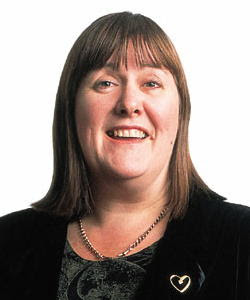
Sexual health charities are one of the most complained about groups working within the gay community.
While they broadly command the support of the pink press, there is consistent criticism of their ad campaigns, priorities and stance on issues such as the ban on gay men donating blood.
Terrence Higgins Trust is the biggest fish in the HIV/AIDS pond, and consequently comes in for the most criticism.
Recent campaigns such as Drugfucked and PlayZone are accused of glamourising drug use and underground sex clubs.
THT command considerable amounts from the NHS and other statutory bodies.
Their most recent report states:
"In 2006-07, we received income from 108 statutory bodies, funding both regional and national work. Of our total statutory income for the year of £8,031,000, £568,000 (7%) came from new contracts.
"Voluntary income rose in 2006-07 by £433,000 (12%) to £4,155,000, with a key increase of £139,000 (8%) coming from individual givers, through regular and one off gifts. Additional funding of £330,000 was also received from the Department of Health."
So THT has the support of government and donors, even if there is disquiet about their strategies to reduce HIV infections in the UK.
The charity works with all people, not just gay men.
Approximately 2,700 men who have sex with men were diagnosed in 2006, the highest number since the epidemic began. 82% of these men probably acquired HIV in the UK.
PinkNews.co.uk sat down with Lisa Power, head of policy at THT.
A gay activist since the 1970s, she has been with the charity for more than a decade.
In a frank interview, she revealed that THT is committed to becoming a mass membership organisation, defended their controversial campaigns and explained why she does not think the gay blood ban is discrimination.
PinkNews.co.uk: The first thing that we need to clear up is that a lot of our readers are under the impression that THT just deals with gay men.
Lisa Power: It would be reassuring to know in a way, since we seem to get a lot of complaints from gay men that we don't deal with them enough, that we are giving too much time to somebody else.
We deal with HIV and sexual health, and HIV will always be central to our work, so a lot of our work is with gay men and a lot our work will remain with gay men.
But we also work, in terms of HIV, we have three target groups.
One is gay men, one is African migrants and the other is people with HIV, anybody who has got HIV.
In terms of sexual health it's again gay men, because gay men have particular issues around sexual health, ethnic minorities, because there are a number of black men who have raised levels of problems with sexual health, and it's young people.
We have incredible rates of things like chlamydia in this country and in fact we have the worst sexual health in western Europe, which is a bit of a disgrace really, and a bit turn up from the 80s when we had some of the best.
PinkNews.co.uk received a lot of emails about a new website for gay men about sex and drugs, it talks about the effects of recreational drugs. How do you counter the argument that you are encouraging drug use.
We have been told that we had been encouraging all sorts of things right from the beginning, we started out with people like Mary Whitehouse saying we were encouraging sex.
The point is that you have to start of from where people are, and not from where you want them to be, and the fact is that a lot of gay men are using recreational drugs.
We'd rather they took them safely, and if they must take them we'd also rather that they thought about the kind of sex they want to have and to try and make that as safe as possible.
Our main aim is to reduce the transmission of HIV and poor sexual health, and gay men as a group have particularity bad sexual health.
We know that is linked with large amounts of recreational drugs taken and if we don't do something about it we are seriously not doing out duty.
We know that it doesn't work to tell people not to do it, we aren't Nancy Reagan we are not going to go 'just say no,' we have to talk to people in the language that they use and in the manner they will be most willing to hear what we have to say.
If that means T-shirts that say drugfucked and special materials for that group and using the language that people who use recreation drugs use, then that's what we will do.
Large amounts of immigrants, people who don't speak English very well, are not getting, served the way English speakers are.
We would agree with that, and it's one of the things that we have really started to highlight, we have just done the annual gay men's sex survey again with Sigma and through the CHAPS programme.
There is some really clear evidence this year that we need to do more targeting of certain groups of gay men.
A key group of gay men who are themselves migrants, it's not just African migrants, it's also gay men who have come here from Latin America, from Eastern Europe and a whole range of other places.
They are not as clued up around sexual health as people who have been subjected to all the materials for the last few years, sometimes it's a language issue, sometimes it's cultural issues, sometimes it's about getting to people in the right place, and we are very well aware of that and it's some of our key aims for future work.
We always work on the evidence base, and the evidence is clearly there, and we would agree that people have been saying that do you that we need to do more work.
An argument often put forward is that the approach that you are taking in your campaigns isn't working you need to start scaring people.
Read the rest of this interview here.




